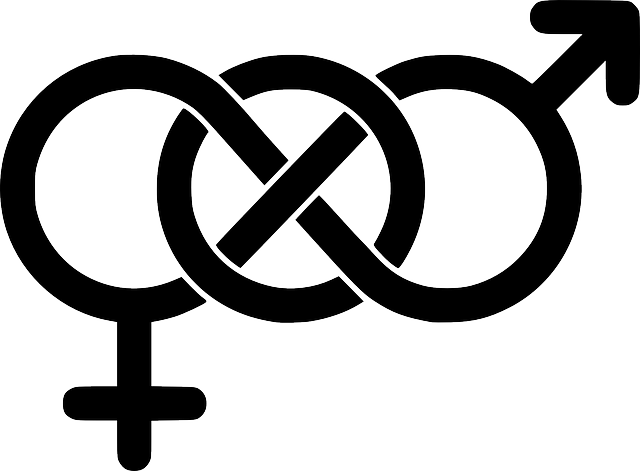Hello! I’m bisexual, and I’m going to be talking a bit about that. More pertinently, I’m going to make an attempt to clear up some confusion that keeps arising.
Bisexual doesn’t mean ‘attracted to men or women’. I’m just going to bop that right on the nose. There’s something of an ongoing debate in the queer corner of the internet as to exactly what the definition actually is, but a basic, uncontroversial version would be ‘attracted to more than one gender’.
“But isn’t that just a different way of saying the same thing?” you may be asking. Well, no actually, because – and I’m going to have to ask some of you to exercise goodwill here, because this may come as something of a shock to your sensibilities – because there are more than two genders.
You have 99% or so of people who fall under what’s now called the gender binary – that is, male and female. Beyond that, it explodes into all sort of variations. It’s not exactly the same as transgender, but there’s a lot of overlap.
From there on, it all gets awfully complicated, and while it’s an important issue and there are some lovely non-binary folks out there, I have neither the right nor the space on the page to speak on their behalf. For our purposes, suffice to say that if you thought there were only boys and girls, you have some catching up to do.
So to be bisexual is to be attracted to more than one of these myriad genders. “But bi means two!” I hear you cry again. Well, misguided but conveniently shouty reader, I put it to you that a jellyfish is neither jelly nor a fish. Furthermore, bisexuals aren’t necessarily bicyclists, bigamist, or bionic.
The word ‘bisexual’ has only been around about a hundred years, give or take. Cultural understanding of it is still in relatively early stages, when you look at the big picture. So the words we use to describe ourselves and the definitions of those words are, by necessity, in flux until such time as we all have a firmer grasp of the nature of sexuality.
Therefore, arguments about bisexuality working from “the definition of the word” don’t work. The definition isn’t fixed, and the narrow ‘attracted to male and female’ version isn’t acceptable just because a few straight professors decided to put it in the dictionary.
One frequently proposed solution is to just use a different word. Well, nah. The alternatives are ‘queer’ and ‘pansexual’, both of which are useful and even necessary, but hardly synonymous.
Calling yourself queer only conveys that you’re not straight and you might maybe be sort of political. Pansexuality, while a genuinely great inclusive concept, doesn’t have the same history, culture, or ‘brand recognition’ as bisexuality, and means something slightly different anyway. There’s too much vested in it to throw out at this stage.
Also, if you don’t mind my saying so, encouraging us to identify as something else is essentially telling us to stop being bisexual. That’s not cute.
“But mister,” our shamefaced spectator attempts one last time, “why all this fuss about the meaning of a word?” Well, because people won’t very well stop arguing about it. The internet, God bless it, has given me a cosy little bi community, but it’s perpetually arguing with their neighbours, the trans community, about this damned definition. Where we should all be working together and helping each other, we too often treat one another as competitors for the same piece of the Big Gay Pie.
We have more important things to be talking about, basically. So let’s move towards getting this out of the way once and for all. ‘Bisexual’ is the best word we have at the moment for expressing the idea of loving people of multiple genders.
We don’t have a lot going for us. Over 40% of bi people have considered suicide. Nearly half of all bisexual women are survivors of rape. 27.6% are in poverty. If we lose that word, we lose a weapon, and we still really need that weapon.
By Mark Laherty
Edit: The definition of bisexuality given in this article may have been overly simplistic in a way that erases polysexuality. This was not the author’s intent, and he apologises for any harm caused.

Love!
This is a really great article. To me it explains the whole debate extremely well and makes a lot of sense as to how and why “bisexual” simply means “more than one”, as opposed to strictly “two”. That is, I’ve heard it explained many times and always been confused, but this made a lot of sense to me.
This was a very necessary article, so I’m glad you wrote it. It’s super-awesome.
Thanks very much! I’m glad I could help. ^^
Very well written, some interesting points mentioned, i’ll have to rebuild my ideal of bisexuality… thanks. – starts looking for the lego pieces.
I’ve heard more and more people define bisexuality in this way but staying true to the meaning of the word by saying that they are sexually attracted to people of the same and different gender as themselves. This cancels out the language argument and stays true to the feeling of being bisexual for most people. (sexuality is complicated)